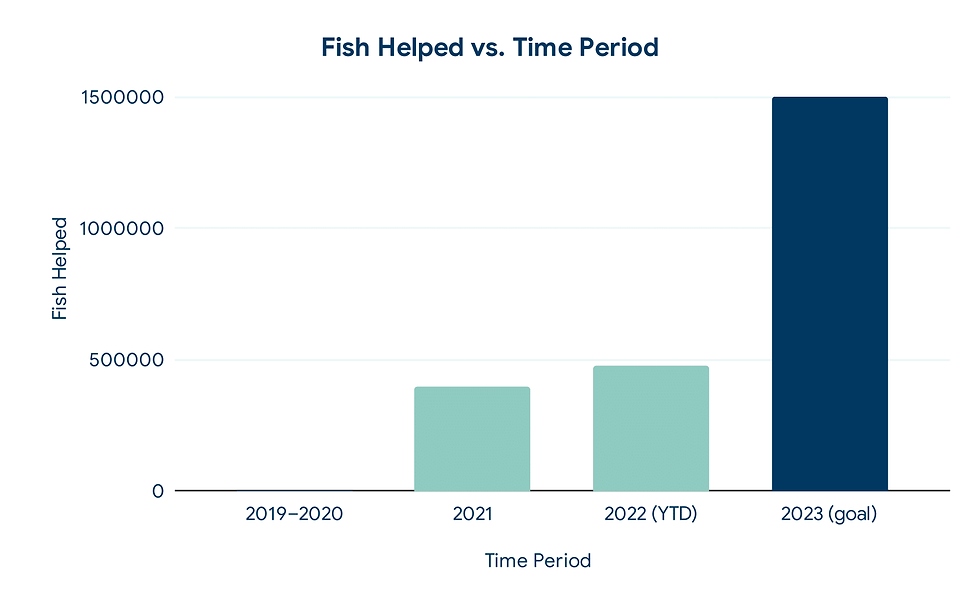Our 2023 Plans for Work in India
- Haven King-Nobles
- Dec 16, 2022
- 3 min read
Updated: Dec 11, 2024
2022 has been a fairly positive year for Fish Welfare Initiative: We co-hosted China’s first-ever Aquatic Animal Welfare Forum, were formally recognized by the Andhra Pradesh state government, and improved the lives of an estimated additional 530,000 fish. The Alliance For Responsible Aquaculture (ARA), our farmer program in India, has particularly grown—adding an additional 44 fish farms this year to a current total of 79. We’ll publish more about these achievements (and also where we fell short) in a post in the coming weeks.
In this post, we highlight our plans for our work in India in 2023 (see also our plans for our work in China). These plans are primarily informed by two key focuses:
First, we are committed to gaining greater confidence in our impact such that in 2023 we will continue testing and validating. This is particularly the case in the first half of the year, when we will spend significant time testing and refining our soon-to-be-published Version 2 Welfare Standard. This will primarily happen via on-the-ground testing with farmers aimed to assess to what extent Version 2’s impact is an improvement on Version 1’s.
And second, as we (hopefully!) gain greater confidence in the impact of our programming, in 2023 we will scale. Provided that the first half of the year proceeds according to expectation, we plan to transition our currently enrolled farmers over to our Version 2 Standard, as well as enroll 150 additional farms with it (in other words, transition from explore to exploit mode). This planned enrollment will more than double the size of the ARA.
We will continue our corporate and policy work in India as well, both in order to support our farmer work as well as to obtain additional promising outcomes.

Program Plans In Detail
Broken down by program area, our plans for 2023 are the following:
Helping Fish: We aim to improve the lives of an additional 1,500,000 fish, primarily through the Alliance For Responsible Aquaculture (ARA). We estimate that this will require us to onboard 150 new farms to the ARA.
Improving our Welfare Standard: We plan to test our Version 2 Standard in the field, and we aim to modify and improve it such that next year we become at least 75% confident that it meets our threshold for both implementability and impact. We also aim to publish our Version 3 Standard, which will take our updated Version 2 Standard and add new components to it, by the end of the year.
Corporate: Despite some positive momentum, our corporate work has proven challenging in 2022—specifically, we do not expect to complete the trial run of higher welfare fish being procured that we intended to achieve. Although our 2023 corporate strategy is still tentative, we currently plan to try again, this time with much more knowledge and some internal changes under our belts, to complete several corporate trial runs. Our plan is for these to later lead to corporate commitments, of which we aim to attain 2 next year.
Policy: Our main policy work in 2023 will involve working with state governments to provide technical assistance on ordinances mandating improved water quality for farmed fish—specifically, we aim to support 2 state governments in this way.
For more information, see our 2023 Objectives and Key Results, which will remain updated with our progress throughout the year. As always, we welcome feedback, criticism, and suggestions about our plans. Feel free to comment those below, or send in a message.

Comentarios